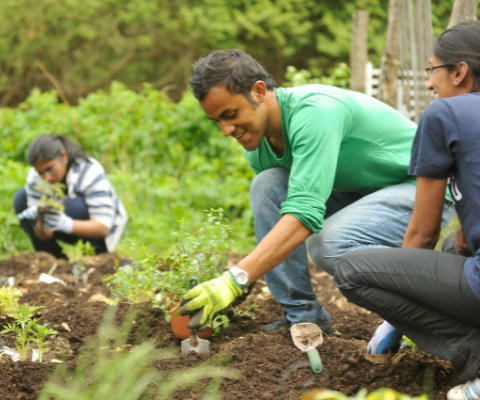Universities Canada defines the term social impact as the positive outcomes of initiatives that tackle social, economic, environmental and cultural challenges faced by people, organizations and communities. The concept goes beyond the academic mission to encompass all aspects of the institution, including financial activities, physical spaces, research activities, teaching and learning, equity, diversity and inclusion, reconciliation and mental health and wellness.
Canada’s universities are dedicated to improving and enriching the lives of Canadians by working as connectors and catalysts, bringing together stakeholders from communities, other educational institutions, governments, and the private sector in Canada and around the world to create positive change. They have a central role to play in tackling both local and global challenges to foster a resilient and equitable future. Strong communities are the driving force of a sustainable society and a crucial part of achieving the United Nations Sustainable Development Goals.
To this end, the members of Universities Canada commit to the following eight social impact principles. They complement Universities Canada’s Principles on Indigenous Education and Inclusive Excellence Principles. Together, these three sets of principles address the responsibilities at the forefront of the higher education sector today and for the next decade.
These principles acknowledge the differences between university communities across Canada and the autonomy of individual institutions to advance change appropriate to local context and needs.
- Local communities: We believe our universities are enriched and influenced by, and depend upon, our local communities. We commit to equitable engagement and building strong relationships with our communities based on the foundational values of respect, reciprocity, transparency and openness, diversity, inclusion and reconciliation.
- Engaged learning: We commit to create opportunities for more engaged teaching and learning by developing initiatives that have a positive impact on the community, enhance students’ learning and engagement skills, and overall foster the value of mutually beneficial partnerships.
- Community-driven research: We recognize the importance of supporting community-driven approaches where communities are equal and active partners in the research process.
- Knowledge exchange: We know that all communities have expertise and assets, and we recognize the value of Indigenous knowledge and lived expertise. We commit to increasing the multi-directional flow of knowledge and insight between universities and local and First Nations, Métis and Inuit communities.
- Recognition: We believe the community engagement work of staff and faculty should be recognized and incentivized through recruitment, promotion and retention processes. Likewise, we believe the work of community partners should be recognized and supported.
- Assets: We believe we have untapped assets and resources we can mobilize to accelerate solutions to a sustainable future and commit to harnessing them for social impact, for example, through investment, procurement, administrative hiring, real estate development, and increasing access to facilities and technologies.
- Governance: We believe our governance systems need to demonstrate our social impact principles, and social impact should be embedded in our missions, visions, values, strategic plans, and governance structures.
- Reporting: We believe in the importance of tracking and reporting on our social progress and commit to working together to share progress and refine our methods.

